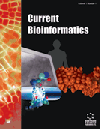-
s Dysfunctional Mechanism of Liver Cancer Mediated by Transcription Factor and Non-coding RNA
- Source: Current Bioinformatics, Volume 14, Issue 2, Feb 2019, p. 100 - 107
-
- 01 Feb 2019
Abstract
Background: There have been numerous experiments and studies on liver cancer by biomedical scientists, while no comprehensive and systematic exploration has yet been conducted. Therefore, this study aimed to systematically dissect the transcriptional and non-coding RNAmediated mechanisms of liver cancer dysfunction. Method: At first, we collected 974 liver cancer associated genes from the Online Mendelian Inheritance in Man (OMIM). Afterwards, their interactors were recruited from STRING database so as to identify 18 co-expression modules in liver cancer patient expression profile. Crosstalk analysis showed the interactive relationship between these modules. In addition, core drivers for modules were identified, including 111 transcription factors (STAT3, JUN and NFKB1, etc.) and 1492 ncRNAs (FENDRR and miR-340-5p, etc.). Results: In view of the results of enrichment, we found that these core drivers were significantly involved in Notch signaling, Wnt / β-catenin pathways, cell proliferation, apoptosis-related functions and pathways, suggesting they can affect the development of liver cancer. Furthermore, a global effect on bio-network associated with liver cancer has been integrated from the ncRNA and TF pivot network, module crosstalk network, module-function/pathways network. It involves various development and progression of cancer. Conclusion: Overall, our analysis further suggests that comprehensive network analysis will help us to not only understand in depth the molecular mechanisms, but also reveal the influence of related gene dysfunctional modules on the occurrence and progression of liver cancer. It provides a valuable reference for the design of liver cancer diagnosis and treatment.


